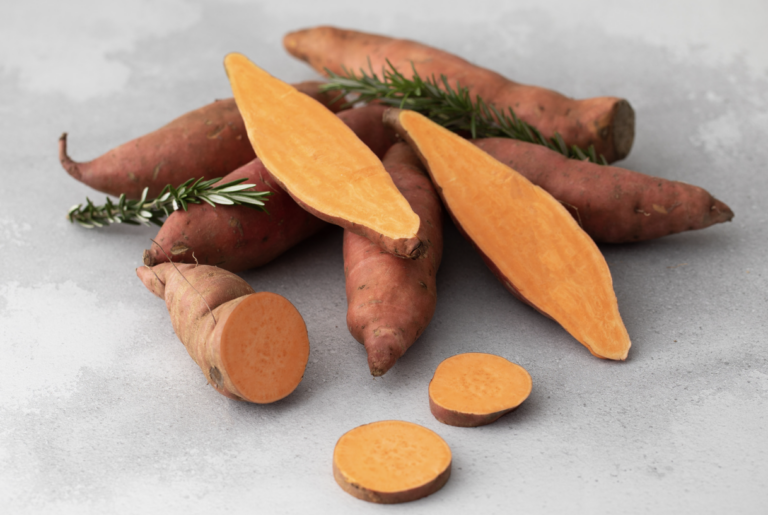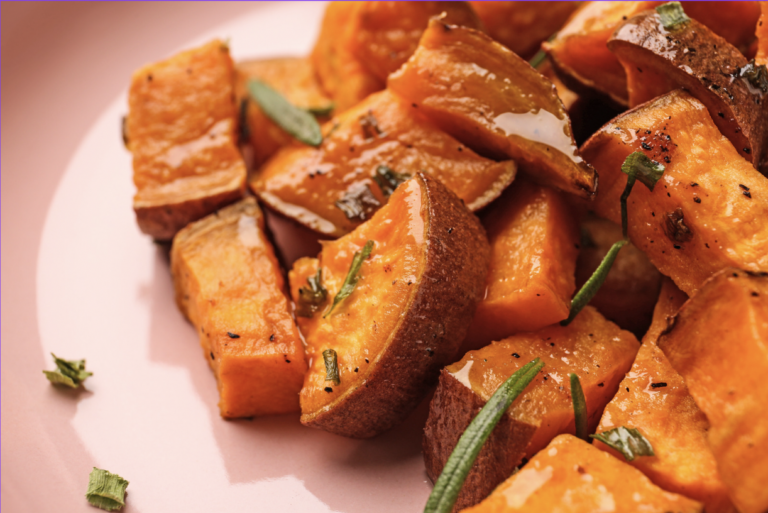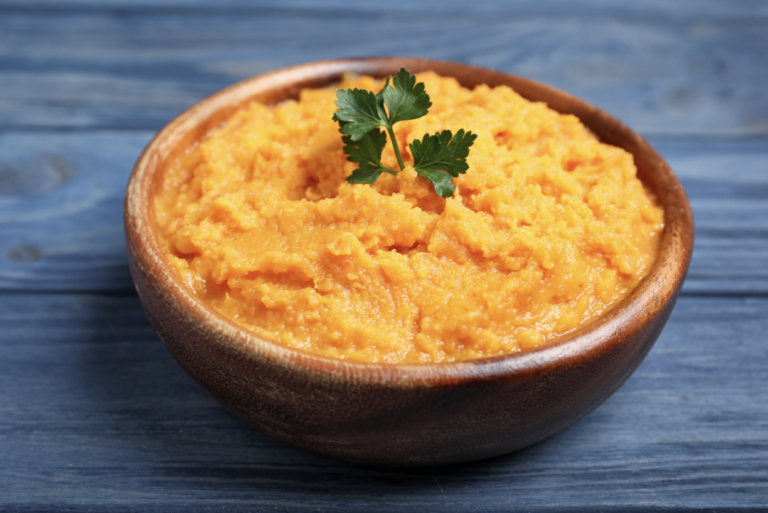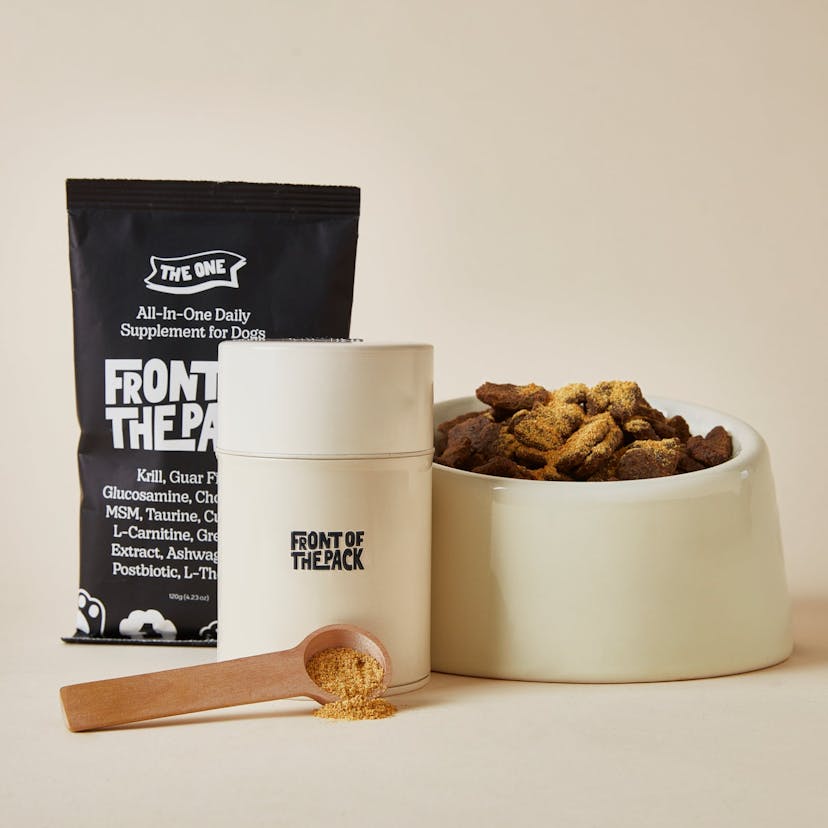Can Dogs Eat This? Nutrition & Recipes Recipes
Can Dogs Eat Sweet Potatoes? Expert Details Nutrition Facts & Exactly How To Prepare Them
Lightly sweet, creamy, soft, and packed with vitamins and minerals, sweet potatoes are a fantastic alternative to white potatoes—at least for humans. But are sweet potatoes healthy for dogs, too? The good news is that cooked sweet potato is safe for your dog to eat!
But, if you’ve noticed sweet potato in dog food you buy for your pup, or are interested in adding a healthy vegetable to your dog’s diet, you probably have more questions about feeding your dog sweet potato the right way.

What’s the right way to cook and prepare sweet potato for my dog? Are sweet potatoes a good source of nutrition, or are they just filler in my dog’s food? What about younger dogs, can I use sweet potato for puppy food, too? Do I need to cook sweet potatoes before feeding them to my dog? What if I have a picky pup, do dogs like sweet potatoes?
We’re answering these questions and more—keep reading to learn everything there is to know about including sweet potato in your dog’s diet.
Can a Dog Have Sweet Potatoes Safely?
Yes! You can safely feed potatoes to your dog as long as they are cooked and the skin is removed.* Sweet potatoes are a common addition to dog food formulas, and lots of people give their pups sweet potato dog treats instead of chews.
But are raw sweet potatoes ok for dogs, too? Raw sweet potatoes are too difficult to chew and can be a choking hazard, or could lead to gastrointestinal distress and intestinal blockage if your dog eats too large a piece of raw sweet potato.
*Some sweet potato dog treats include thin strips of skin—this is safe since there is very little skin, but large pieces could be a choking hazard.
Sweet Potatoes for Dogs: Benefits & Nutrients

Dogs can eat sweet potato, but is cooked sweet potato good for dogs or just a filler ingredient to add extra calories? What benefits can your dog enjoy if you decide to add sweet potato to their diet?
Nutritional Value of Sweet Potato
One of the best reasons to add sweet potatoes to your dog’s diet is to give them a healthy source of dietary fiber and carbohydrates. Although dogs are carnivores, they aren’t obligate carnivores, and they can—and should—enjoy some fruits and vegetables in their diet. Fibrous foods like sweet potatoes help your dog’s digestive system. Carbohydrates go hand in hand with dietary fiber and fuel your dog’s energy so they can play, go for walks, and make plenty of mischief.
| Sweet Potato Nutrition Facts (per 100 g) | |
| Calories | 86 kcal |
| Total Carbohydrates | 20 g |
| Dietary Fiber | 3 g |
| Protein | 1.6 g |
Sweet potatoes are also great sources of vitamins and minerals like vitamin A, vitamin B6, vitamin C, potassium, and more.
Benefits of Sweet Potatoes for Dogs
Although most dogs enjoy sweet potatoes, you don’t need to convince them to eat very much to enjoy the benefits. Even small amounts of sweet potato fed to your pup regularly can give them the boost of added nutrition they need.
| Benefits of Sweet Potatoes for Dogs | |
| Vitamin/Mineral | Supports… |
| Beta Carotene | Eye and vision healthHealthy skin and coatCell protection (antioxidant protection) Bone growth and health |
| Calcium | Bone growth and healthHealthy muscle development and retentionHeart healthStrong teeth and dental health |
| Iron | Muscle functionBuilding block of blood cell productionEnergy and metabolism |
| Magnesium | Healthy metabolism and nutrient absorption Bone healthCellular energy productionMuscle functionCardiac health |
| Potassium | Hydration and fluid retention (it’s an electrolyte!) Healthy muscle functionNervous system functionCardiac health |
| Vitamin A | Eye and vision healthImmune system support |
| Vitamin B6 | Nervous system functionHealthy skin and coatCardiac healthRed blood cell productionHormone regulation |
| Vitamin C | Cell protection (antioxidant protection) Immune system functionBone and joint health |
How To Cook Sweet Potato For Dogs

Cooking sweet potatoes for your pup at home is super easy, and you can do it in less than an hour! Remember that you should always remove the skin of the sweet potato before feeding it to your dog—this can be done before cooking or afterward, once the sweet potato has cooled enough to be handled.
No matter how you cook the sweet potatoes, always allow them to cool completely before feeding to your dog.
How To Boil Sweet Potatoes for Dogs
Making boiled sweet potatoes for dogs is super simple, and all you’ll need is a pot of water and your sweet potatoes. We like this method because boiling creates a consistent texture throughout the sweet potato, and often produces a very creamy and soft end result. Sweet potatoes can be boiled whole or in smaller pieces for a faster cooking time.
Instructions:
- Bring a large pot of water to a rolling boil over high heat.
- Prepare your sweet potatoes—they can be boiled whole or cut.
- Add raw sweet potatoes to boiling water and reduce the temperature to medium-high.
- Cook until tender, about 30–50 minutes for whole sweet potatoes and 15–25 minutes for cubed sweet potato.
How To Bake Sweet Potatoes for Dogs
To bake a sweet potato for your dog, we recommend using a lined baking sheet. You can bake sweet potatoes directly on the rack of your oven, but they drip quite a lot of juice during the baking process which can be a mess. We also recommend baking your sweet potatoes with the skin on to protect the inner flesh. The skin will be very easy to remove once the sweet potatoes are tender.
Instructions:
- Preheat your oven to 425℉. Line a baking sheet with foil or parchment paper.
- Wash and dry your whole sweet potatoes then place them on the lined baking sheet.
- Bake for 40–60 minutes or until the sweet potatoes are soft and easy to puncture with a fork.
How To Make Sweet Potato Puree for Dogs

Once you’ve cooked your sweet potatoes, you can serve them to your dog cut into small pieces or as a mash or puree! Making a puree is simple, and you can achieve a beautifully smooth mash in a few different ways.
Method 1: Add cooked sweet potato flesh to a food processor or blender with 1 tablespoon of cold water per sweet potato. Blend until smooth, adding a little more water if the puree is too thick.
Method 2: Using a potato masher, mash the peeled sweet potato flesh in a large bowl or boiling pot.
Can Dogs Eat Sweet Potatoes? FAQ
Have more queries about feeding your dog sweet potatoes as part of their regular diet or as an occasional treat? Here are our answers to the most common questions about this nutrient-packed tuber.
Can dogs have cooked sweet potatoes?
If the question is “Can dogs eat cooked sweet potatoes with no seasoning?” the answer is yes! Plain, cooked sweet potato is completely safe for dogs and can be used as a meal mix-in or as a treat.
Can dogs have uncooked sweet potatoes?
We know cooked sweet potatoes are safe for dogs, but can dogs have sweet potatoes that are raw? The answer is no. Feeding dogs sweet potatoes that haven’t been cooked can cause upset stomachs, create intestinal blockages, and could be a choking hazard.
If your dog has already eaten a piece of raw sweet potato and you are wondering “are raw sweet potatoes bad for dogs?” or whether you need to bring your dog to the vet, the answer is probably no. Keep an eye on your dog for the next few days to make sure they are eating, drinking, and going to the bathroom normally. Raw sweet potato doesn’t contain any dangerous toxins that could seriously hurt your dog, and if they have thoroughly chewed the sweet potato they should be able to pass the pieces.
Are cooked sweet potatoes good for dogs?
Yes! Whether you’re asking “can Yorkies eat sweet potatoes?” or “can Great Danes eat sweet potatoes?” the answer is always yes. Dogs of all sizes and breeds can benefit from enjoying sweet potatoes, and you won’t even have to force your dogs to eat their veggies—dogs love the flavor of sweet potatoes!
Can dogs eat sweet potato skins?
No. While your dog can eat the flesh of a sweet potato safely, it’s not a good idea to give them the skin even if it has been cooked. You always want to be careful to choose safe treats for your dogs and sweet potato skins can be a choking hazard, cause stomach aches, and may contribute to intestinal blockages.
Small strips of sweet potato skin left on dehydrated sweet potato chews or jerky are fine, but avoid large pieces of skin.
Can puppies eat sweet potatoes?
Yes! Like adult dogs, puppies can benefit from the nutrients found in sweet potatoes, and you can even find sweet potato puppy food recipes that are packed with dietary fiber.
Can dogs eat yams?
Can dogs eat yams and sweet potatoes, or just sweet potatoes? What’s the difference?
Although the terms are sometimes used interchangeably, yams and sweet potatoes are two different types of tubers, but dogs can eat both. So yes, dogs can eat yams and they even offer some of the same benefits as sweet potatoes. Just be sure to always peel and cook yams—and sweet potatoes—before you give them to your dog.
Can dogs eat mashed sweet potatoes?
Yes, as long as the mash or puree is pure 100% sweet potato, and doesn’t contain seasoning, salt, butter, or other ingredients. Human foods like mashed potatoes often contain added salt and fat, which isn’t good for your dog.
How much sweet potato is safe for dogs?
Exactly how much sweet potato you feed your dog will depend on their size, health, lifestyle, and nutritional needs, but in general, veterinarian Dr. Joshua Montgomery says “sweet potato should not make up more than 10% of a dog’s daily caloric intake.”
If you’re adding sweet potato to your dog’s food, this means ensuring no more than 10% of their diet is made up of sweet potato. If you’re just giving sweet potato as a treat you don’t need to be quite as careful.
Can dogs eat regular white potatoes?
Yes! White potatoes are also safe for dogs to eat fully cooked and peeled.
Relate Articles:
- 4 Homemade Sweet Potato Dog Treats: Recipes for Healthy, Dehydrated Chews Dogs Love
- Can Dogs Eat Eggplant? Yes! Here’s How To Get Your Dog To Eat It
- Can Dogs Eat Pomegranate? Find Out Which Part of the Pom You Should NEVER Feed
- Pancake Panic: Can You Share Your Stack With Fido? Can Dogs Eat Pancakes?



